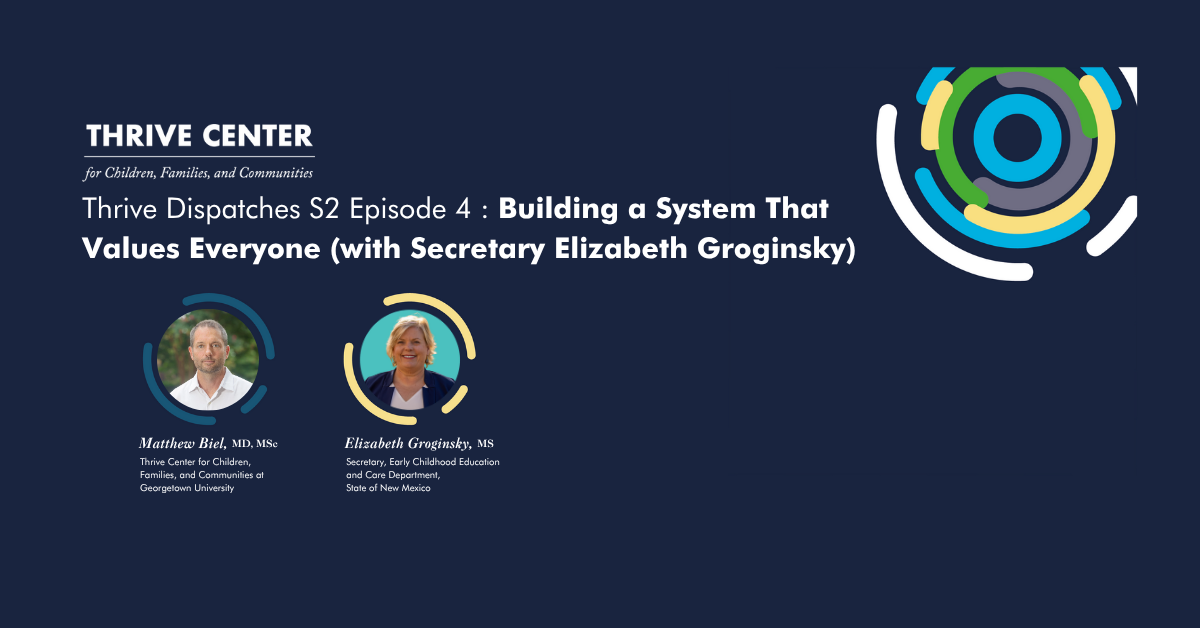Thrive Dispatches Season 2 Episode 4: Building a State System for Early Childhood (with Secretary Elizabeth Groginsky)
In this episode, Dr. Matt Biel speaks with Secretary Elizabeth Groginsky, who leads New Mexico’s Early Childhood Education and Care Department, the first cabinet-level department of its kind in the country. When she arrived in New Mexico in 2019, the state ranked 50th in many national measures of child wellbeing. Now they’re building what many see as a national model for early childhood systems change.
Secretary Groginsky shares her journey from program evaluator to systems change leader, exploring how she launched a new department during the pandemic and how New Mexico uses population-level data to drive community action. At the heart of their approach is a fundamental insight: you can’t expect different results when the people delivering care can barely support their own families.
The conversation reveals how New Mexico has transformed its approach to early childhood through bold investments in workforce compensation, creating wage parity for pre-K teachers, establishing comprehensive wage scales across all early childhood programs, and providing free college for early childhood professionals. These aren’t incremental improvements but represent a fundamental shift in how a state values its early childhood workforce.
For questions, comments, or ideas for future episodes, please email us at: thrivecenter@georgetown.edu.
Download Full Transcript
Summary:
In this excerpt, Secretary Groginsky explains the connection between caregiver wellbeing and quality care:
This interview has been edited for length and clarity.
Elizabeth: When the cost of quality study came out, the country was kind of shook a little bit that we would be actually having children, paying for children to be in care that was poor to mediocre…thinking, you know, fast forwarding to where we are now, knowing then that our early childhood professionals in that poor to mediocre care were probably making 7.25 an hour at the minimum wage at the time.
Matt: So I mean, I love the way you’re framing, because the implication is that a better early literacy program or a better nutritional curriculum or, choose your programmatic solution isn’t gonna really get at those, at those challenges, is it?
Elizabeth: That’s right. And I remember when I first arrived in New Mexico, I had a chance to talk to Dr. Lieberman, who does a lot of work in infant early childhood mental health. And she just kind of turned the light bulb on for me. I couldn’t believe it had been that many years, but she said: how can we expect a different result? You know, when the people here, the caregivers don’t even have their basic needs met.
Listen to the full episode
